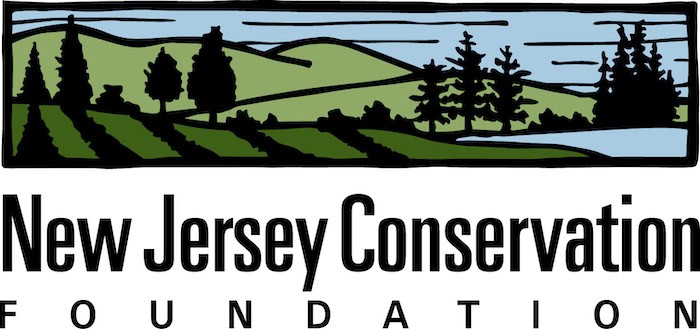By Jay Watson
Everyone has to eat, but not everyone in New Jersey has equal access to fresh, healthy, nutritious foods.
This state we’re in has many “food deserts,” or communities without places to buy groceries. Food deserts exist mostly in cities where supermarkets are scarce and lower-income households do not have transportation to shop elsewhere.
This lack of access is often referred to as “food insecurity,” but it could also be called “nutritional insecurity.” The problem isn’t having no food at all; it’s a lack of healthy foods. Many food deserts have plenty of fast food restaurants and convenience stores.
Lacking fresh foods, many urban residents end up eating a diet of highly processed foods laden with fat, sugar and salt. This can lead to numerous health issues, including obesity and diabetes.
The New Jersey chapter of the Northeast Organic Farming Association (NOFA-NJ) wants to help improve nutritional security, food justice and health in the Garden State.
One project it is working on, in partnership with New Jersey Conservation Foundation, is opening hundreds of acres of state-owned land to minority and beginning farmers who cannot afford their own land.
Another project is providing freshly harvested fruits and vegetables to low-income urban residents at affordable prices.
“New Jersey may be the most diverse state in the nation, yet we have not really directed much of our resources to developing young farmers and encouraging organic farmers,” noted Nagisa Manabe, the outgoing executive director of NOFA-NJ.
The future of New Jersey’s food system and how to provide healthy foods for all residents was the theme of NOFA-NJ’s 32nd annual Winter Conference, which was held online on Jan. 29-30.
The entire first day of the conference was devoted to food justice and creating better food systems.
“I thought the Winter Conference would be a great way to re-introduce NOFA-NJ as an organization that is really committed to diversity and inclusion issues in our state,” said Manabe.
The first day of the conference opened with an invocation by Chief Vincent Mann, leader of the Turtle Clan of the Ramapough Lenape Nation in northern New Jersey.
Three years ago, Mann started an organic farm on low-cost leased land owned by the nonprofit Foodshed Alliance, with the goal of helping to provide for his people. Mann is now launching a pilot farming project on state Fish and Wildlife land.
Another morning speaker was Winona LaDuke, founder and director of the organization Honor the Earth, who spoke about the impacts of the climate crisis on farmers, especially Native Americans.
The morning session also introduced the Farm Share program, which will allow NOFA-NJ to bring Community Supported Agriculture (CSA) to urban areas where it currently is not available.
Under the CSA model, consumers pay farmers before the growing season in exchange for weekly shares of freshly harvested produce during the summer and fall.
Under the Farm Share proposal, CSA payments would be subsidized, allowing greater access to healthy foods by qualified urban residents.
Among the afternoon speakers was Karen Washington, owner of Rise & Root Farm in the Bronx, N.Y., who spoke about “Nourishing Cities in a Changing Climate.”
Another speaker was Raj Patel, co-author of the book “Inflamed,” a study of the lasting impacts of colonialism and discrimination on oppressed groups.
Rich Landau and Kate Jacoby, owners and chefs at The Vedge vegan restaurant in Philadelphia, spoke about the growing popularity of plant-based eating and its benefits.
The final first day speakers were U.S. Sen. Cory Booker (D-NJ) and Corey Glover, leader of the rock band Living Colour. Their talk, “Food, Justice and the People,” discussed food insecurity’s impact on New Jersey and the nation, and its impact on agriculture.
Sen. Booker, a long-time vegan, has co-sponsored a Senate bill to provide reparations to farmers of color who have been illegally and unjustly deprived of access to land.
The first day concluded with a screening of the film “Voices from the Barrens – Native People, Blueberries and Sovereignty,” which documents the wild blueberry harvest of the Wabanaki People from the United States and Canada.
The second day of the conference centered on the practical issues of growing organic crops in New Jersey, including the best trees and shrubs to plant on farms and in home gardens for perennial harvests of nuts and berries.
Strengthening New Jersey’s local food system in the face of climate change and making it more equitable for all New Jerseyans is vitally important for our state’s health and well-being.
Eating local reduces air pollution created by transporting food long distances and sustainable organic farming methods help slow down climate change by storing carbon in soils and plants.
To see a map of New Jersey’s “food deserts,” go to https://njdca.maps.arcgis.com/apps/webappviewer/index.html?id=cd59d206f39c40a691d6ba38598134fb
Jay Watson is a co-executive director of the New Jersey Conservation Foundation. He may be reached at [email protected]

